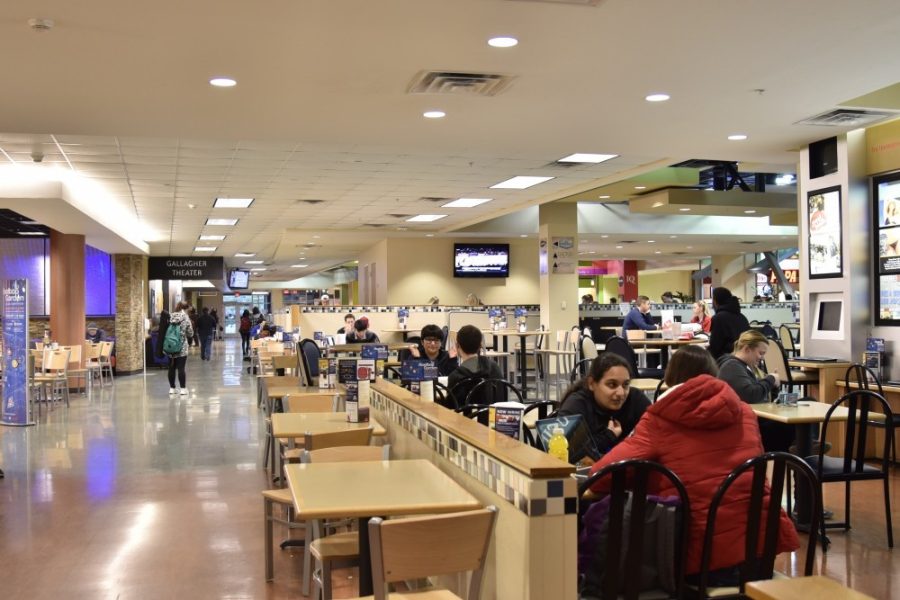Arizona Student Unions will no longer seek Arizona Board of Regents approval for changes to student meal plans. This decision comes after student leaders voiced concerns about how the proposed changes would perpetuate food and housing insecurity among low-income students.
Todd Millay, executive director of Arizona Student Unions, announced and explained this decision for the first time publicly to the Daily Wildcat.
RELATED: New UA tuition and fees proposal released, Honors College proposes significant program fee increase
“It’s not complete,” Millay said of the proposal. “We don’t have the answers or enough of the right answers that would fully address the legitimate student concerns that we’ve been listening to. It’s not good enough — at this point, that might be the easy way to say it. So, we’re going to not propose to go to ABOR for any review or approval at this point.”
Features of the now-scrapped proposal include mandating the meal plan for all freshmen residing on campus, transforming all plans to a swipe system and increasing the prices of all plans.
One major criticism was that mandating and increasing the price of meal plans would force students who couldn’t afford them to move off-campus and away from critical academic resources.
“It forces low-income students to live off campus, which would decrease all of their access to financial or academic resources on campus, and since they’re also the least likely demographic to be able to afford transportation costs – like owning a car, bus fees or anything – it’s kind of kicking them while they’re down,” said Julia Ostberg, incoming Residence Hall Association president for 2021-2022. “It’s not going to make students food secure; it’s just going to make them go be food insecure somewhere else.”
Arizona Student Unions will form a student advisory committee made up of student leaders from communities across the University of Arizona, including but not limited to Associated Students of the University of Arizona representatives, RHA officials, members of the athletic program and members of the Parents & Family Association.
The number of members on this committee has yet to be determined, but Millay told the Wildcat that Arizona Student Unions has no limit in mind. He also noted that adding an extra year of research and planning to the proposal will mean that any changes would be implemented earliest fall 2023 provided that the committee comes to a consensus on the proposal.
Students also expressed concerns about the transition to swipe-based meal plans. Current RHA President Tyrus Nelson told the Wildcat that he saw the move as a sly way to increase profits.
“It’s a way to accelerate profits as fast as you can,” Nelson said. “Let’s say you go to Panda Express, and you spend $5, but your swipe was for $10. They just take that extra $5, and you don’t get that money back. That’s essentially what that plan is doing; it’s trying to accelerate profits so they can cover their financial loss that they have during the pandemic, which I don’t think is necessarily due to the pandemic. It’s due to the food quality on campus.”
Nelson added that the lack of healthy and affordable options at the Student Union Memorial Center may deter a lot of students from eating there, and he said he doesn’t think that meal plans should be mandated at the expense of students’ financial situation and health.
According to Millay, Arizona Student Unions only makes (“in a good year”) about two cents on the dollar after it pays any overhead cost, debt and bills, and any profit is given back to the university.
“[I don’t] make a bonus check,” Millay said. “None of my staff is on commission, and nobody gets paid based upon sales. The profits are the president’s and the campus communities’. We give it to them, and they distribute it. The concept that this machine is trying to profit on the backs of low-income students, that narrative is a very misleading thing.”
Millay conceded that providing healthier options is one area in which the unions could improve.
“Over the last six years, we’ve read surveys and listened,” Millay said. “The overwhelming response is ‘I want more healthy and affordable meals.’ That’s the one-two punch always, very consistently over the years. We’ve been trying, but we need to make improvements on that just across the board. That’s one of the big ones.”
Millay told the Wildcat that students should keep an eye on the Arizona Student Unions website for more information about the advisory committee that it will be assembling to revise the existing meal plan system.
Follow Kristijan Barnjak on Twitter









